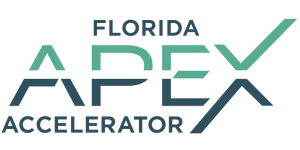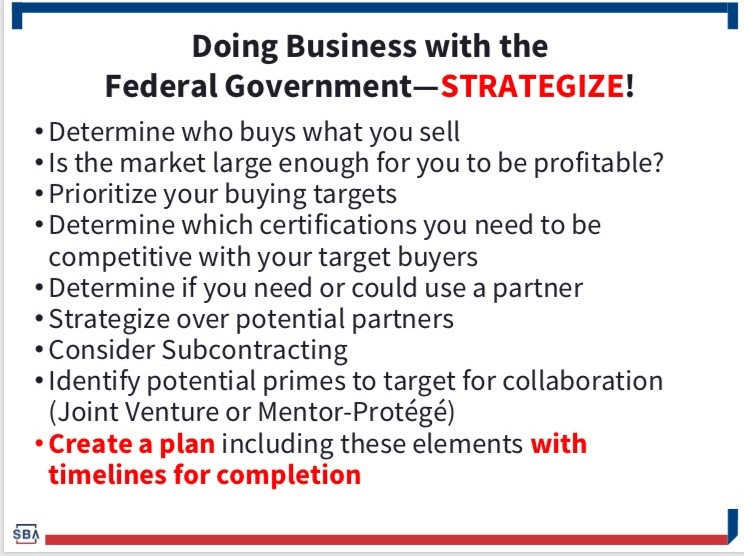CVE Verification Pointer: Remember to Provide Truthful Information
In a recent article, published on SmallGovCon, the government contracts attorney Matthew Schoonover discusses the SBA Office of Hearings and Appeals’ decision to cancel a contractor’s SDVOSB verification on the grounds that the contractor provided false information. Click here to read the full article.
Consolidated GSA schedule will be out October 1, 2019
September 10 2019 by Jane Dowgwillo
GSA has posted an announcement of its intention to consolidate the current 24 Multiple Award Schedules (MAS) and release a new single Schedule for product, services, and solutions on October 1, 2019. You can find more information on the GSA’s Interact website including what to expect after the consolidated schedule is released.
On October 1, 2019, GSA will publish the new, consolidated, solicitation on FedBizOpps along with applicable attachments. The FBO package will contain:
- Solicitation
- Available Offerings Summary Document
- One Attachment for each Large Category
- Regulations Incorporate by Reference
- Significant Changes Document
You can read more on the GSA Interact website.
Save the Date: CDC Partnering with NITAAC (NIH) for Small Business Industry Day, Nov. 5, 2019, Atlanta
Attention: IT Small Business Vendors
Save the Date – CDC Partnering with NITAAC(NIH) for Small Business Industry Day, November 5, 2019, at the HYATT Regency, downtown Atlanta
The National Institutes of Health Information Technology Acquisition Assessment Center (NITAAC), in conjunction with the Atlanta Centers for Disease Control and Prevention, and National Contract Management Association Atlanta, is pleased to invite you to participate in the Atlanta-area Industry Day on November 5, 2019, at the Hyatt Regency Atlanta.
The Atlanta Industry Day is a one-day industry event, where agencies, local businesses, and private sector government contractors come together to learn, share and connect with each other. Attendees are a mix of federal agency IT decision-makers, procurement officials, and industry stakeholders.
Attendees will leave the industry day with a better understanding of the NITAAC GWAC vehicles, recent industry/government developments and various program requirements and other procedures.
Register Now: https://nitaacindustrydayatlantajune272019.eventbrite.com
This event is complimentary to attend. Register Now, space is limited.
8 Government Contracting Errors to Avoid
by Yolanda Cowart, Florida PTAC at USF | February 22, 2019
Why do so many businesses fail to access the federal marketplace?
The spending power of the federal government makes it a very attractive market. However, operating a profitable business in the federal marketplace creates obligations, potential liabilities and risks that do not exist in the private sector.
In order to sell products and services to the government, a business owner will need to plan, prepare and evaluate the company’s potential.
There are several reasons why business owners fail to secure government contracts or fail while performing on federal government projects. In order to give a company a fighting chance, avoid these eight common mistakes:
- Inadequate business framework: Accessing government contracts requires a blueprint for success. In order to compete successfully, a business owner will need to create a business plan for government contracting goals. A well thought out strategy forces one to think about opportunities, risks, strengths, and weaknesses.
- Poor execution and internal controls: Government contracts require intelligent processes and procedures. Business owners must adopt safeguards that will protect not only their business, but the government from mistakes, mishaps, uninformed decisions, and inappropriate actions by any employees or team members.
- Overexpansion: Government contracts often require business owners to beef up their operations. Taking on added overhead and operational expenses too soon can impact the ability to perform and execute contracts efficiently. Business owners should start with realistic goals and manage growth and expectations.
- Poor capital structure: A business owner should conduct a cash flow analysis and cash flow projection in order to avoid accumulating too much debt. Government contracts will have a direct impact on a company’s cash flow cycle. It requires a capital structure that can support growth and sustain an entire operation until the government pays.
- Lack of reserve funds: Government awards are often accompanied by unexpected cost associated with executing contracts, fulfilling orders and meeting demands. These pitfalls could be devastating for a business if the company does not have the funds to address unforeseen cost quickly. Failure to be able to address issues fast and efficiently could result in the loss of credibility with the contract administrator and ruin the potential for future awards.
- Overspending: Many businesses blow their operational budgets before cash has begun to flow in at a positive rate. A company must ensure a government contract will be well-capitalized. Understanding cash flow by capturing expenses and resources prior to beginning a project, will ensure the contract is capitalized properly.
- Ineffective marketing and self-promotion: It is important for a business owner to learn how to market the company’s capabilities effectively. A strong Capabilities Statement will help gain the attention of contract specialists. Inadequate marketing often occurs due to a lack of research and a misunderstanding about how the federal sector operates.
- Underestimating the competition: There is a large possibility that many competitors may have already built relationships with government agencies, prime contractors and contract specialists. Winning a government contract doesn’t just happen; it is earned. If a business owner doesn’t take the time to learn about customers and potential partners, the competition will.
Successful government contractors have strong capital structures that include reserve funds for unforeseen cost. They also have good internal controls and intelligent processes and procedures that allow them to execute contracts efficiently. An adequate business framework will avoid overexpansion and overspending.
The federal landscape is filled with small companies that fail to secure that first contract. In order to sell your products and services to the government and successfully execute contracts, you will need to understand your competition, create a marketing plan, prepare your operations and evaluate your potential.
There are a number of local resources available, such as the professionally credentialed procurement specialists at the Florida PTACs, that can assist companies as they decide to enter the government contracting arena.
Sources Sought – Architect-Engineer (AE) Services NAICS 541330 – Engineering Services
Title: Indefinite Delivery Indefinite Quantity (IDIQ) procurement to acquire Architect-Engineer (AE) Services throughout the Mobile District Area of Responsibility (AOR) to Support Mobile District’s Planning and Environmental Division
Sol. # W9127819L0054
Agency: Department of the Army
Office: US Army Corps of Engineers
Location: USACE District, Mobile
Posted On: Sep 10, 2019 11:02 am
Base Type: Sources Sought
Link: Click Here
Federal Contracting: Getting Your Foot in the Door
Written by Nancy Dahlberg on April 22, 2019
If you are a small business that has determined federal contracting may be right for you and you have identified some potential contracts to pursue, you need put your best foot forward to get in the door.
By now we hope you have read our two previous posts about whether federal contracting is right for your business and on researching contracting opportunities. If it is time to get your foot in the door, many of these tips will also be helpful if you are going after state or local government contracting opportunities also.
Each federal agency has a small business office (OSDBU) to ensure agencies fools small business rules and regulations – they are not buyers but should be your first stop at an agency. Brian Van Hook, associate director of the Florida SBDC at FIU, the small business development center within FIU’s College of Business, recommends already having completed your SAM registration and having three opportunities in hand as well as your financial plan. Ask the OSDBU for an email introduction to the Contracting Officer. Ask the Contracting Officer for a capability briefing and schedule monthly marketing outreaches. Program Managers also have agency knowledge and may be able to offer value to the solution you are offering to the agency.
Be proactive in marketing your products or services, says Luis Batista, a Florida Procurement Technical Assistance Center consultant who specializes in government contracting. While your ability to respond to opportunities will depend on what opportunities are available via solicitations, Batista says “proactively” marketing your products or services to Contracting Officers (where appropriate), user departments, Primes and other government contractors will be critical to your success.
One example of this would be to reach out to vendors being awarded large contracts in your area of work for subcontracting opportunities, Batista said. Another example might be to reach out to large Primes within your area of work, which you can identify via USASpending.gov.
“The takeaway here is that while you are not responding to solicitations you should be networking,” says Batista.
And about putting your best foot forward?
- Make a good first impression. Be professional (including using an email address affiliated with your website – no yahoo or Gmail accounts) and triple check for typos.
- Make sure your company website is updated and typo-free.
- Know your company’s sweet spot and lead with you and your company’s expertise and experience. Emphasize your ability to mitigate risk and overcome obstacles.
And as a quick review, Althea Harris, the U.S. Small Business Administration’s assistant district director for Marketing and Outreach Area 1 (Miami), adds this advice as you are developing your contracting strategy and considering opportunties:
Procurement Technical Assistance Centers (PTACs) can provide no-cost assistance to small businesses looking to compete for government contracts, including through its BidMatch program. You can locate the PTAC closest to you at the Association for Procurement Technical Assistance Centers Website: http://www.aptac-us.org/contracting-assistance
GSA Begins Pilot Using OTA-Like Streamlined Acquisition Process
The General Services Administration (GSA) announced this week that they are using a streamlined process to procure innovative, commercial solutions. Click here to read the article.
How to Find Federal Government Contracting Opportunities
Written by Nancy Dahlberg on April 19, 2019
While small businesses may have been spooked by the recent government shutdown, you should know that the federal government is the largest buyer in the U.S., spending billions of dollars annually on products and services in construction, R&D, manufacturing, logistics, IT and other industries. Federal agencies also have prime contracting goals for small businesses and set-asides in a variety of categories, such as for women-owned, minority-owned or veteran-owned small businesses.
Last year, the federal government met its small business federal contracting goal for the fifth consecutive year, awarding nearly 24% in federal contract dollars to small businesses totaling $105.7 billion, an annual increase of $5 billion and up more than $20 billion since 2013.
So how do small businesses get a piece of that pie? In a recent GrowBiz post, we gave you some advice on determining whether government contracting is right for you. You can find it here. Ready to pursue federal government contracting opportunities?
It’s a process, but it doesn’t have to be overwhelming, says Brian Van Hook, associate director of Florida SBDC at FIU, a Florida Small Business Development Center within FIU’s College of Business. “You have to understand it is the federal government and there is paperwork involved, but the government has made a lot of effort to streamline processes and to make things more responsive. And that’s why programs like SBDC and PTAC are out there — we are here to help people to pursue these opportunities.”
PTACs, or Procurement Technical Assistance Centers, can provide no-cost assistance to small businesses looking to compete for government contracts. PTAC consultants work with a small business on researching opportunities – including through its BidMatch service — as well as provide feedback on the business’ capability statement, proposal and overall strategy. “We can help them work smarter not harder, basically coming up with a more tailored strategy,” said Van Hook.
SBDC consultants can also help small businesses seeking government contracting in a variety of ways. “Some businesses have a great game plan when it comes to contracting but they need working capital until they receive payment. We have other consultants who can help with the operations side or HR as businesses ramp up to service a big contract. That’s where PTAC and SBDC work hand-in-hand to help out the business owner.”
Van Hook, who previously worked for the U.S. Commerce Department and on Capitol Hill, said small businesses need to do their homework and be prepared to follow up. That includes developing your plan for entering the marketplace, completing the required registrations, developing marketing tools and securing relevant certifications.
Althea Harris, the U.S. Small Business Administration’s assistant district director for Marketing and Outreach Area 1 (Miami), agreed.
“Small businesses have to do their research and they have to strategize. It’s very important to be ready and part of that means being financially ready. You have to be able to afford the contract you want, you have to make payroll before the government or a prime contractor pays you. It means you have the right employees in the place or you know how to employ them quickly,” Harris said.
“Being ready also means understanding what value you bring to the proposition, and not everyone is able to articulate that in a way that is compelling. In what way are you distinctly different and better than your competitors? Be very targeted about the contracts you are going after. Understand what it will cost you to pursue the contract. It is a business proposition to pursue the federal money that will cost you time and money, which is money and money.”
TAKING THE FIRST STEPS
To start your search for opportunities, go to USASpending.gov and search for all the federal awards under each and every one of your NAICS codes. These are your potential federal contracting partners, says Van Hook.
Then, do your homework. Once you have your list of potential agency partners, learn what they buy and how much, how they buy it and how much. Are they hitting their small business goals?
Once you have duly registered in SAM.gov, completed an SBA Profile there and created a Capability Statement, you will then want to turn quickly to Capture Management, the function of identifying opportunities, says Luis Batista, a Florida Procurement Technical Assistance Center consultant who specializes in government contracting.
As part of your Capture Management process within the federal system, you will first want to register on the Federal Business Opportunities (FBO) website, which lists all open contracting opportunities over $25,000 across multiple federal government agencies. While on FedBizOpps, you can create an account and have your own custom “My FBO” home page with Quick Links and Quick Search, Batista says.
“What is important to understand here is that you do not need to respond to opportunities by yourself. If you are new to federal contracting, you can use the Interested Vendors section on any given opportunity (where available on FBO.gov) to both list yourself and find others that you may be able to work “with” as a Teaming Partner or “for” as a Subcontractor,” Batista says. “The key to finding Teaming partners is identifying what they have that you need and what you have that they need. This may be a Set-Aside and only one of you may have that certification, or it may be a question of capital, experience, geographical location, or other factors.”
FBO also offers the Vendor Collaboration Central Event Listing, which allows small businesses to find and participate in federal agency collaboration or engagement opportunities. The Small Business Events for Outreach and Training publishes events across the country from many agencies and organizations.
MORE ABOUT SUBCONTRACTING
Many vendors find subcontracting a preferable route to getting experience as a federal contractor. Large business prime contractors with contracts expected to exceed $700,000 (or exceeding $1.5M for construction) are required to subcontract some of the work to eligible small businesses. This is an excellent way to test the waters of federal business without suffering undue risk, Batista says.
Another advantage is that subcontracting doesn’t require a subcontractor to hold a Schedules contract. When a small business receives a subcontract from a larger prime contractor, the vetting process is done by the Prime, not the Agency.
In addition to small business set-aside subcontracting opportunities, qualified small businesses that meet various socioeconomic criteria are eligible to compete for additional set-aside opportunities, after obtaining certification from the Small Business Administration (SBA) where it is required. Set-aside categories include 8(a) Small Business, Historically Underutilized Business Zones (HUBZone) Small Business; Service-Disabled Veteran-Owned Small Business (SDVOSB); and Woman-Owned Small Business (WOSB). Read more about Set-Asides and Special Interest Groups for additional information here.
You can locate the PTAC closest to you at the Association for Procurement Technical Assistance Centers Website: http://www.aptac-us.org/contracting-assistance
Is Your Business Ready for Government Contracting?
Written by Nancy Dahlberg on October 30, 2018
Winning a government contract can be very rewarding, but getting there is an extremely complex process, especially if you’re not prepared beforehand.
Luis Batista, a Procurement Technical Assistance Center consultant who specializes in government contracting, helps businesses assess whether they are ready for government contracting by looking at five key areas of a business. They are:
- Past Performance. Past performance, defined by the accumulation of work completed by a business with customers in the public and private sectors, is an essential component in determining a firm’s readiness for government contracting because it is a quantifiable metric, like revenue or years in business. Equally important, many government proposal requests utilize past performance as an evaluation criteria. Therefore, the more relevant past performance a firm has, the more ready they are for government contracting. Typically, the government requires two years of steady past performance.
- Strong Financials. Strong financials are defined by positive cash flow and year-over-year increases in revenue. Therefore, the stronger the financials a firm has, the more ready they are for government contracting.
- Access to Capital. The more access to capital a firm has, the more ready they are for government contracting. Is your company able to access a line of credit or capital in order to support the costs to perform on a contract?
- Strategic Partnerships. These are the professional relationships maintained by a business with other businesses that offer the same or complementary services in order to support their pursuit of government contracts or performance on government contracts. Therefore, the more strategic partnerships a firm has, the more ready they are for government contracting. In Batista’s experience, the most effective method for identifying and creating business relationships is by attending outreach events and networking events.
- An Orderly Office or Operations. A business with an orderly office is efficiently operated in terms of its administrative, operational and accounting activities, making it better able to perform as a government contractor.
Now that you have a better understanding of what is required to be ready for government contracting, ask yourself: Are you ready?
Procurement Technical Assistance Centers (PTACs) can provide no-cost assistance to small businesses looking to compete for government contracts. You can locate the PTAC closest to you at the Association for Procurement Technical Assistance Centers Website: http://www.aptac-us.org/contracting-assistance
Free Webinar: Subcontracting Requirements from Prime Contractors, October 1, 2019
Prime Contractor Great Lakes Dredge & Dock Company, LLC (GLDD LLC) is co-hosting an outreach webinar with the Wisconsin Procurement Institute (WPI) on October 1, 2019, from 10:00 AM – 12:00 PM CST / 11:00 AM – 1:00 PM EST (Eastern Standard Time).
The webinar will include the following presentations:
- Brief summary of the free resources provided online by the U.S. Small Business Administration (SBA) by Norma Alberts, GLDD LLC | njalberts@gldd.com
- GLDD’s specific project needs: Tugboat & towing services, endangered species observers, diesel fuel (#2 low sulfur-marine diesel), safety products, rental equipment, welding machining, rental apartments, and marine hardware and supply
- Special Guest Speaker: Marc Violante, Director, Federal Market Strategies Specialist at WPI, will speak on the topic of “Innovation – Trends, Programs, and Technology in the Federal Marketplace” | marcv@wispro.org
- Question and answer period
This webinar is free to attend; however registration via email is required in advance.
Please fill out the attached Supplier Size Business form and email it to njalberts@gldd.com along with your capabilities statement. Your company name, address, capabilities/brief description, and business size is required on the attached form. You will receive the access link for the webinar after submitting the form.




